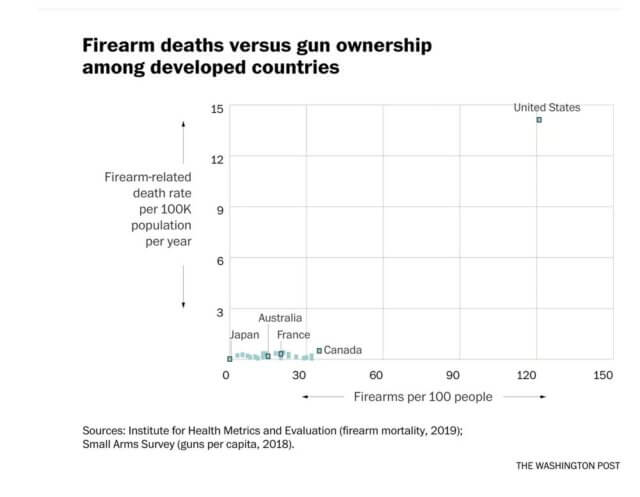November 2022: Three recent events made me notice the ways our society’s establishment deflects criticism.
Veterans Day
Growing up in England taught me little about U.S. history, so it was only this year I learned that Veterans Day, first observed in 1919, was originally known as Armistice Day. (It’s still called this in France, while other countries call it Remembrance Day).
An armistice is an agreement to stop fighting a war. As President Woodrow Wilson said on the first Armistice Day, held at the end of World War I:
“…the victory of arms foretells the enduring conquests which can be made in peace when nations act justly and in furtherance of the common interests of men.”
World War I led to wide agreement in the “developed” world that war should be avoided if at all possible. A hundred years ago, the creation of Armistice Day provided an annual reminder of a goal most people still support today.
It’s great that we have a day to honor veterans. But what struck me when I learned about the name change in 1954 from Armistice Day to Veterans Day is that it deflected citizen attention from reinforcing the goal of ending war. The establishment eliminated Armistice Day—a day commemorating the end of war—and changed the focus to a day to honor military veterans.
While most people decry war, there is a powerful minority that profits from its continuation. Though you might think that waging war is just “human nature”, there’s evidence that war is a relatively recent phenomenon. And war deaths worldwide have declined significantly since World War II.
I was three years old when politicians eliminated Armistice Day from our cultural vocabulary, and I don’t know the circumstances. But it’s easy to see the act as a cynical repression by the establishment of the concept that ending war is a noble and worthy goal for humanity.
Because I think we would all like an invite to the party after the war.
Wearing masks
I’ve written frequently about the effects of the COVID pandemic. Currently, many people are acting as if the pandemic no longer exists. Even though it’s still killing hundreds of people every day in the U.S. (Not to mention the ~10% who are now suffering from long covid. Which you really, really don’t want to get.)
When authorities bother to suggest precautions against the spread of COVID, they restrict any advice to wearing masks when indoors with others.
Wearing masks is an important prevention strategy that reduces personal risk and one’s risk of infecting others. But when many people eschew masking, COVID is going to be with us for a long time. Many more people will die and become disabled.
What authorities never mention is a far more effective prevention strategy that would, if comprehensively implemented, essentially wipe out COVID and other airborne diseases.
I’m talking, of course, about improving indoor air quality in buildings. Especially public buildings.
We have known for a hundred years the importance of providing fresh indoor air, and the necessary technology is widely available. Making our buildings safe by requiring adequate air changes/hour plus virus filtering provides permanent protection against viral epidemics. Not just COVID and flu, but past and future pandemics too.
Emphasizing individual masking while avoiding any society-wide attempts to improve building air quality is another example of how the establishment deflects responsibility for disease prevention away from our institutions and onto individuals.
Thoughts and prayers
This week there were two major horrific mass shootings in the U.S. Five people were killed and 17 injured at Club Q in Colorado Springs, Colorado. Six people were killed and four wounded at a Walmart store in Chesapeake, Virginia. By the time you read this, there will be more mass shootings; there are about two every day, though most barely make the news anymore. The number of mass shootings has doubled in the last three years.
After especially violent crimes like these, many who continue to resist any meaningful restrictions on the fetish of gun ownership in this country trot out the phrase “thoughts and prayers”. Of course, these platitudes do nothing to change the civilian slaughter rate, some 21,000 people (not including gun suicides) in 2021.
Politically powerful groups, heavily funded by the gun industry, repeatedly mouth “thoughts and prayers” but do nothing to change the daily carnage that easily available guns cause. These elites deflect our populace from thinking about whether the U.S. might be able to reduce gun violence and deaths by such systemic changes as keeping guns out of the hands of domestic abusers, requiring background checks for all gun sales, and banning assault weapons and high-capacity ammunition magazines. All things that are done in other developed countries, with significant results.
Instead, the establishment relentlessly promotes the idea that Americans should take individual responsibility to protect themselves and their loved ones by buying guns of their own. The gun industry makes money, and the cycle of gun violence continues.
There are many more examples
There are many more examples of how our society’s establishment deflects criticism by emphasizing personal responsibility rather than systemic solutions to problems. These are just three that came up for me this week. If you would like to add your own examples, feel free to do so in the comments below.


